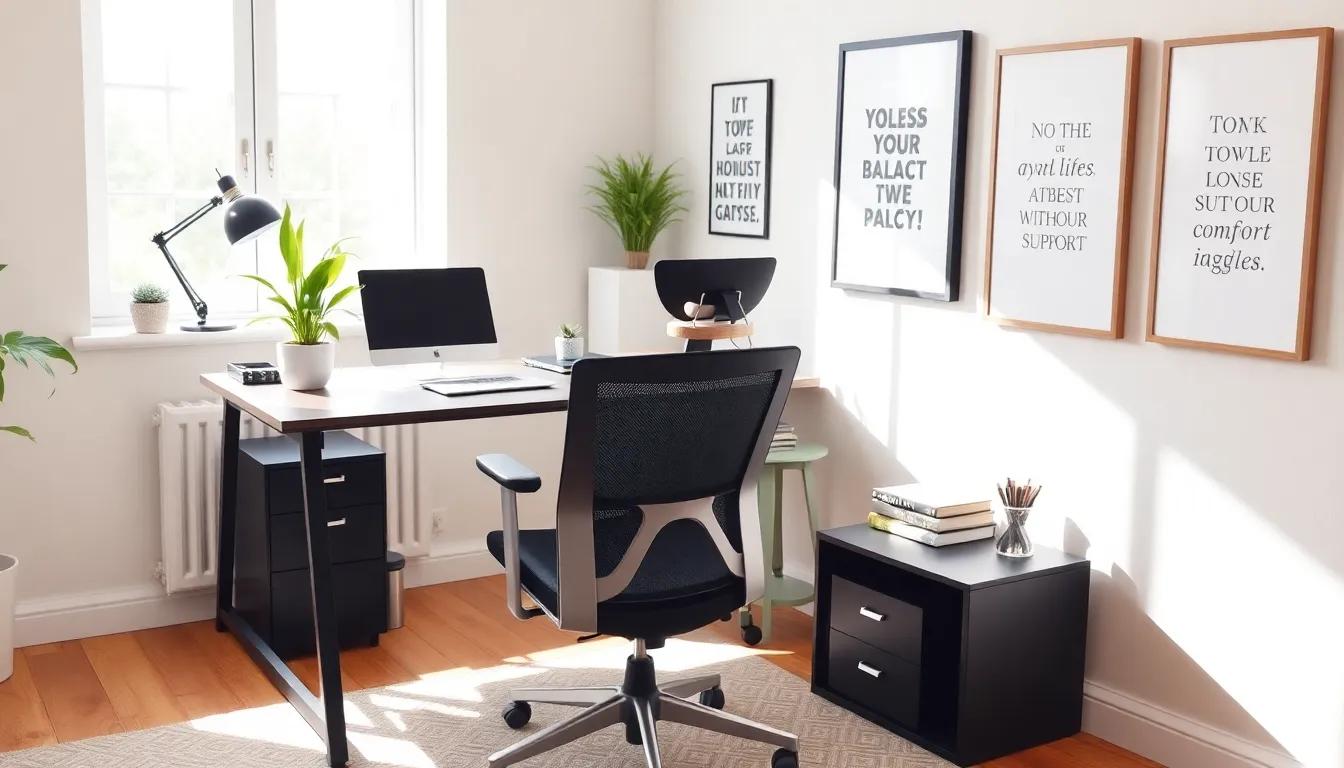In a world increasingly inclined towards remote work, mastering the art of working from home has become essential. Picture this: you jump out of bed, brew your favorite coffee, and settle into your pajama-clad perfect office. Sounds wonderful, right? But unless you navigate the landmines of distractions and chaos, that cozy scene can quickly turn into a productivity black hole. Don’t worry. With some insightful best practices, anyone can transform their home into a bustling virtual office, all without sacrificing comfort or sanity. Let’s jump into the indispensable strategies for working from home that can lead to endless productivity and maybe even an occasional snack break.
Table of Contents
ToggleEstablishing a Productive Work Environment

Choosing the Right Workspace
Creating a dedicated workspace is the bedrock of a productive day. For optimal performance, it’s best to select an area that’s free from distractions. Think of it as the fortress of solitude for work, minus the capes. Ideally, this space should be well-lit and stocked with the tools necessary to thrive. A clutter-free environment can do wonders for focus and mental clarity. More importantly, it should feel personal: whether it’s adorned with inspiring quotes or a little plant friend, this touch can make a difference.
Ergonomic Considerations
Comfort is king when it comes to long hours at the desk. Investing in ergonomic furniture can prevent back pain and repetitive stress injuries, ensuring that the work-from-home experience is less like torture and more like a cozy chat with a favorite friend. Chairs should offer good lumbar support and desks should be set at a height that allows for straight wrist positioning when typing. Small adjustments create a compounding effect towards better posture and longevity in the home office.
Minimizing Distractions
Distractions are the enemies of productivity. In a world full of notifications and shiny objects vying for attention, establishing methods to minimize these distractions is vital. A few simple strategies can include:
- Setting Boundaries: Let others know your work hours. A simple ‘Do not disturb’ sign or verbal cue can work wonders in signaling your focus time.
- Limiting Social Media: While it’s tempting to check that TikTok video, setting specific times for social media use can help maintain focus.
- Creating a Focused Soundtrack: Background music or even simple ambient sounds can drown out distracting noises and bolster concentration.
Setting a Structured Daily Routine
One of the best practices for working from home is to maintain a structured daily routine. Routines help anchor the day and add predictability, which is especially comforting during chaotic times. Start by waking up and preparing as if heading out to work, this small act triggers the mind to switch to work mode. Planning breaks, scheduling meetings, and allocating specific time slots for tasks can greatly enhance productivity. Using a planner or digital calendar could make personal organization come as second nature.
Leveraging Technology and Tools
Staying Connected with Colleagues
In a remote environment, maintaining strong connections with fellow team members is crucial. Tools like Zoom, Slack, or Microsoft Teams can help help seamless communication. Regular check-ins and virtual coffee breaks can ease feelings of isolation while strengthening team bonds.
Effective Communication Strategies
Mastering communication goes beyond simply sending messages back and forth. It’s essential to be clear and concise in every interaction. Using simple language, setting expectations, and confirming relationships can create an efficient workflow that fosters cooperation.
Utilizing Project Management Tools
Staying organized is the backbone of remote work and utilizing project management tools like Trello or Asana can keep tasks on track. These platforms enable teams to visualize progress, assign roles, and meet deadlines, all while eliminating the need for constant back-and-forth emails.
Maintaining Work-Life Balance
Setting Boundaries and Time Management
In the quest for productivity, it’s crucial not to blur workplace boundaries. Clearly delineate work hours and personal time. Using techniques like time-blocking can enhance focus while also allowing individuals to efficiently manage their energy. After hours, disengaging from work is key, turning off notifications and stepping away from the laptop can create a healthier separation.
Incorporating Breaks and Downtime
Making time for breaks is not just a luxury, it’s a necessity. A simple 5-minute stretch every hour can rejuvenate the mind and prevent burnout. Building in consistent downtime through movement, meditation, or even a brief walk creates a rhythm that enhances overall performance.





